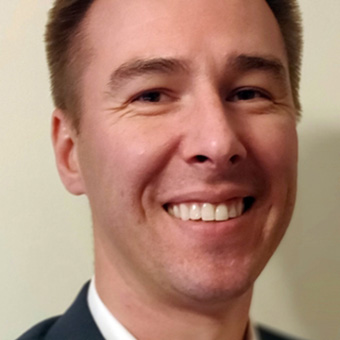Martin Wojtyniak, PhD’12, Molecular and Cell Biology
 Senior Biotechnologist, MITRE
Senior Biotechnologist, MITRE
Can you describe your career path and how it has led to your current work?
Early in my career, working at a large biotech company, I quickly realized that an advanced degree and additional training would be required to advance as a research scientist. This led to me enrolling in the Molecular and Cell Biology doctoral program at Brandeis where I focused my studies on topics that were of interest to me and applicable to industry. As graduation approached, my sights broadened and I began to appreciate the diversity of potential career opportunities eventually landing at a consulting firm near Washington, DC. I am currently working at the MITRE Corporation, a non-profit which runs several federally-funded research and development centers (FFRDCs) for the U.S. government. My current work varies but typically focuses on assessing or providing direction for scientific programs at various government agencies.
What services and/or resources did you use while at Brandeis for your career search?
I visited the Center for Career and Professional Development on multiple occasions for advice and feedback on my curriculum vitae. At the tail end of my time at Brandeis, the Biology Department began to host a series of workshops on career paths inside and outside of academia which were quite informative. Central to establishing my career path was networking through peers or contacts on social media platforms like LinkedIn.
What skills from your Brandeis degree have you found most valuable in your current work?
Designing and executing a project, course correcting, managing the work of others, and communicating my ideas and findings were central to not only my scientific training but to almost every other part of my career.
What advice do you have for current students as they embark on their job search?
- Build a network. I reached out to as many people as I could who were in jobs or worked for companies in which I was interested. Not a single person turned me down for an informational interview and I extend that same courtesy when others contact me.
- Get information. You can learn a lot through resources like Glassdoor and LinkedIn, but it is best to speak with people directly. Ask pointed questions about the company's values, culture, career paths, and expectations.
- Start early. Consider a short, part-time internship if you can.
- Identify your transferable skills. For instance, completing a research project is more than collecting data. It involves project management, communication, and strategic thinking.






